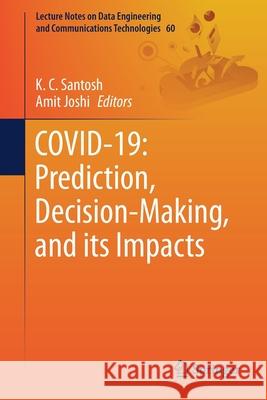Covid-19: Prediction, Decision-Making, and Its Impacts » książka
topmenu
Covid-19: Prediction, Decision-Making, and Its Impacts
ISBN-13: 9789811596810 / Angielski / Miękka / 2020 / 137 str.
Kategorie:
Kategorie BISAC:
Wydawca:
Springer
Seria wydawnicza:
Język:
Angielski
ISBN-13:
9789811596810
Rok wydania:
2020
Wydanie:
2021
Numer serii:
000804827
Ilość stron:
137
Waga:
0.22 kg
Wymiary:
23.39 x 15.6 x 0.84
Oprawa:
Miękka
Wolumenów:
01
Dodatkowe informacje:
Wydanie ilustrowane











